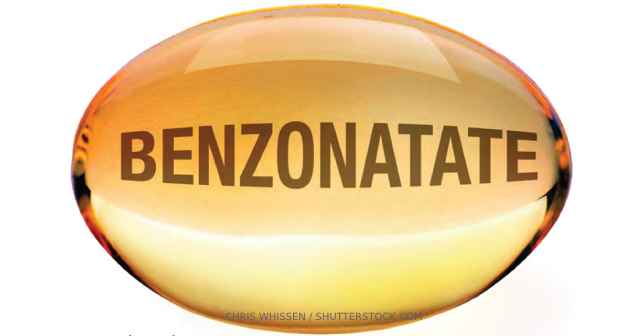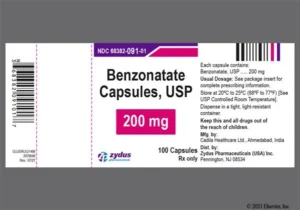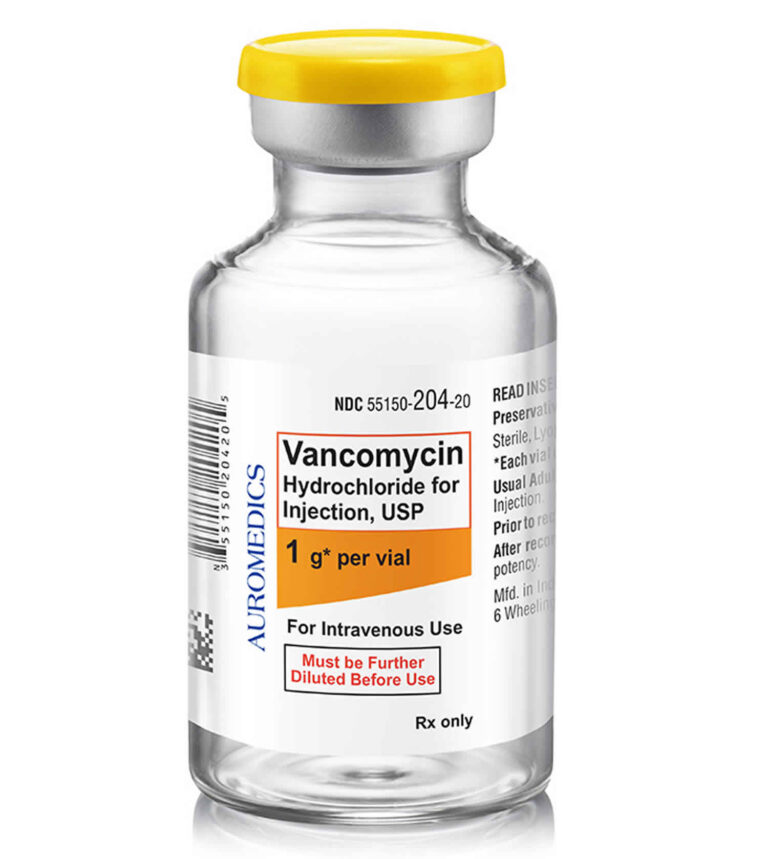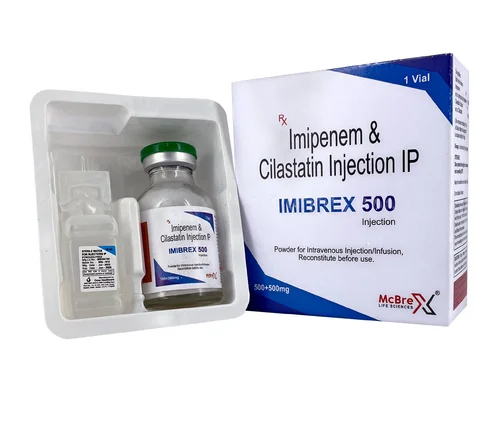
Benzonatate is an antitussive medication that does not contain narcotics and is utilized to alleviate coughing. Its mechanism of action involves numbing the throat and lungs, which diminishes the cough reflex. This medication is typically prescribed for short-term coughs caused by colds, flu, or other respiratory conditions. It belongs to the class of drugs called local anesthetics and is often used in conjunction with other treatments to manage respiratory symptoms.
Mechanism of Action
Benzonatate inhibits the stretch receptors found in the lungs and pleura, thereby preventing the initiation of the cough reflex. By inhibiting these receptors, it decreases the intensity and frequency of coughing.
Uses and Indications of Benzonatate
Benzonatate is primarily prescribed to manage:
- Cough due to colds
- Cough due to flu
- Chronic bronchitis
- Other respiratory infections or irritations
It is typically used as part of symptomatic therapy, alongside other treatments, depending on the underlying cause of the cough.
Dosage and Administration
- Adult Dosage:
-
- The typical dose for adults is 100 mg to 200 mg per capsule, administered three times a day as needed.
- The maximum recommended daily dose is 600 mg.
- Pediatric Dosage:
- For children aged 10 years or older, the recommended dose is the same as for adults.
- Children under 10 years should not take benzonatate due to the risk of serious side effects such as choking and overdose.
How to Take Benzonatate
Benzonatate capsules should be swallowed whole. They must not be chewed or dissolved in the mouth, as doing so may cause a severe numbing effect in the mouth and throat, leading to choking or difficulty breathing.
Side Effects of Benzonatate
Like all medications, it can cause side effects, although not everyone will experience them.
Common Side Effects:
- Drowsiness
- Headache
- Nausea
- Constipation
Serious Side Effects:
- Allergic reactions (rash, itching, swelling)
- Difficulty breathing
- Chest tightness
- Seizures (rare)
Overdose Symptoms:
An overdose of benzonatate may result in symptoms like:
- Seizures
- Cardiac arrest
- Coma
- Severe dizziness
- Numbness in the mouth or throat
It is essential to seek prompt medical care if an overdose occurs.
Contraindications of Benzonatate
Don’t use it in the following cases:
- Allergy to benzonatate or related compounds
- Children under 10 years of age
- Severe respiratory conditions or history of respiratory failure
Drug Interactions
While benzonatate has relatively few drug interactions, it is still important to consider potential interactions, especially with the following types of medications:
- Cough suppressants: Using benzonatate with other cough suppressants can increase the risk of respiratory depression.
- Sedatives or tranquilizers: The sedative effects of both benzonatate and tranquilizers can be additive, increasing drowsiness.
Thus, inform your healthcare provider of any medications you are currently taking before starting it.
Warnings and Precautions
- Risk of Choking: Since it can numb the throat, there is a risk of choking if the capsule is chewed or dissolved in the mouth.
- Respiratory Depression: In rare cases, excessive doses may lead to respiratory depression.
- Pregnancy: Benzonatate is classified as a category C medication by the FDA, indicating that it may be prescribed if the anticipated benefits surpass the associated risks. It is essential to seek medical advice prior to using this medication during pregnancy.
- Breastfeeding: The transfer of benzonatate into breast milk remains uncertain. Therefore, administer it with caution while breastfeeding.
Brand Names of Benzonatate
Below is a table summarizing some of the popular brand names and their specifications.
| Brand Name | Strength | Dosage Form | Manufacturer |
| Tessalon Perles | 100 mg / 200 mg | Capsule | Upsher-Smith Laboratories |
| Benzoate | 100 mg / 200 mg | Capsule | Aurobindo Pharma |
| Zonatuss | 100 mg | Capsule | Vintage Pharmaceuticals |
| Tessalon | 100 mg | Capsule | Mylan Pharmaceuticals |
| Benzonatate | 100 mg / 200 mg | Capsule | Various generics |
Storage and Handling
- Benzonatate should be stored at room temperature, ensuring it is kept away from moisture and heat sources.
- It is important to keep this medication out of children’s reach.
- Do not take any medication past its expiration date.
Alternatives to Benzonatate
While it is effective for managing cough, other alternatives may be used based on the specific cause of the cough:
- Dextromethorphan: A common over-the-counter cough suppressant.
- Codeine: A narcotic cough suppressant, usually reserved for more severe cases.
- Guaifenesin: An expectorant that helps loosen mucus, making coughing more productive.
Conclusion
Benzonatate is an effective treatment for symptomatic relief of cough, particularly when other treatments are not appropriate. However, It is important to follow dosage guidelines and avoid misuse, such as chewing the capsules, to prevent serious side effects. Thus, always consult with a healthcare provider to ensure that benzonatate is the right choice for your condition and to monitor for potential interactions with other medications.




